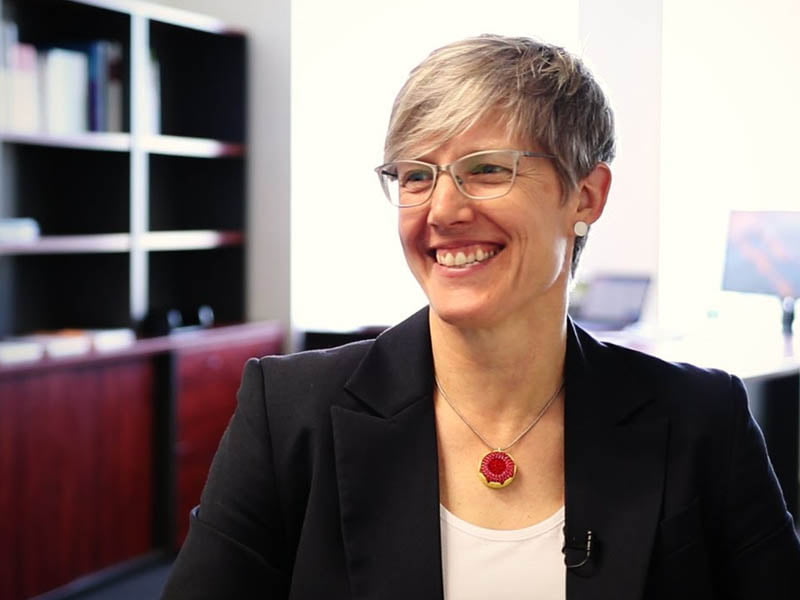The transforming potential of data and analytics is the focus of CEDA’s Economic and Political outlook report for 2018. But it questions Australia’s preparedness to meet challenges in these key areas.
Particularly, the Committee for Economic Development of Australia questions the nation’s preparedness for the impact of the resultant disruption on the workforce and our ability to develop the ethical frameworks surrounding use of personal data, especially when coupled with artificial intelligence.
AI and automation have long exercised the CEDA thinktank. Its landmark 2015 report forecast that 44 per cent of all Australian jobs would be impacted by automation.

That analysis has since been questioned and more recent reports suggest that only 20 per cent of people are currently in jobs that will be shrunk by automation by 2030.
Nevertheless, there will be some impact and CEDA and its 750-member organisations want enterprise and government to prepare.
In an interview with The Establishment before the launch of the 2018 report CEDA chief executive Melinda Cilento said “it feels to me like a big chunk of the population doesn’t feel connected to economic reform, who are questioning the benefit of 25-plus years of sustained economic growth.
“There is an opportunity for us to really start exploring some of those issues, like why there is a disconnect – perceived or otherwise – between some parts of the community and the reform agenda, and how we bring them together.”
Explaining the value of innovation remains the missing link.
The digerati are itching to innovate, big business knows it must, government accepts it has to; but the general population is still scratching its head and asking “what’s in it for me?”
That’s particularly the case, says Ms Cilento, “in an environment where wages growth is low. The fact that we have had sustained economic growth and strong business performance for 25 years probably matters less to people in the outer suburbs who are facing longer commute times, and don’t feel their wages are keeping pace with the cost of living.”
If the general population doesn’t come along for the ride then it won’t advocate STEM subjects to children, it won’t recognise the need to reskill, and innovation policy reform won’t get the barbecue traction it needs come election time.
It’s an issue that concerns Ms Cilento. “We are at an interesting point where we see the pace of things accelerating – technological advance and automation and all those things – the pace of innovation and impact of globalisation.”
“It makes people feel they have less control and are sitting on the sidelines.”
She says the tremendous benefits that arise from innovation need to be more effectively communicated.
“The long-term challenge is really well known, infrastructure, dealing with an ageing population, how we better deliver human services to a different demographic and what the fiscal implications of that are, how to manage a smaller tax base with the number of working age people,” she said.
“All those structural drivers are well known.” What is missing, she says, is a compelling story about how the quality of people’s lives will be sustained or improved in the future.
Ms Cilento took on the CEDA role in October last year and says that; “The challenge for me as a new CEO is to continue to be honest about whether we are having the impact we want to have.”
She wants CEDA to lift its voice and have more impact on the nation’s reform agenda.
“CEDA is really well placed to explore how we can explore some of the issues and try to better connect to the wider community and elevate key issues.”
One of the key issues, she says, is education. “We need to think about education systems that are more adaptive and flexible over time. The idea that you expect younger people to front up with a five or six-year investment in education and then expect that to provide an income stream for you for the next 30 years has changed rapidly.”
Instead there needs to be a greater focus on and commitment to lifelong learning, says Ms Cilento.
She is also hopeful that the government will pay proper heed to the Productivity Commission’s Data Availability and Use report which she says is “tremendously powerful for consumers” if the proper guardrails regarding access and privacy are constructed.
But she warns that at present many Australian organisations view data as a liability rather than an asset.
“They are worried about the implications of any data breach and there are circumstances where they would be personally liable for that.”
Instead she says, a middle road is required where data is properly secured and stored, but also made accessible to improve outcomes for all.
“The challenge in all of this is being realistic about what is able to be done, be careful in how you do it – if you lose confidence it is hard to regain. Be clear about the benefits to be delivered to individuals and organisations.”
Then and only then will innovation gain the traction it deserves.
Do you know more? Contact James Riley via Email.

